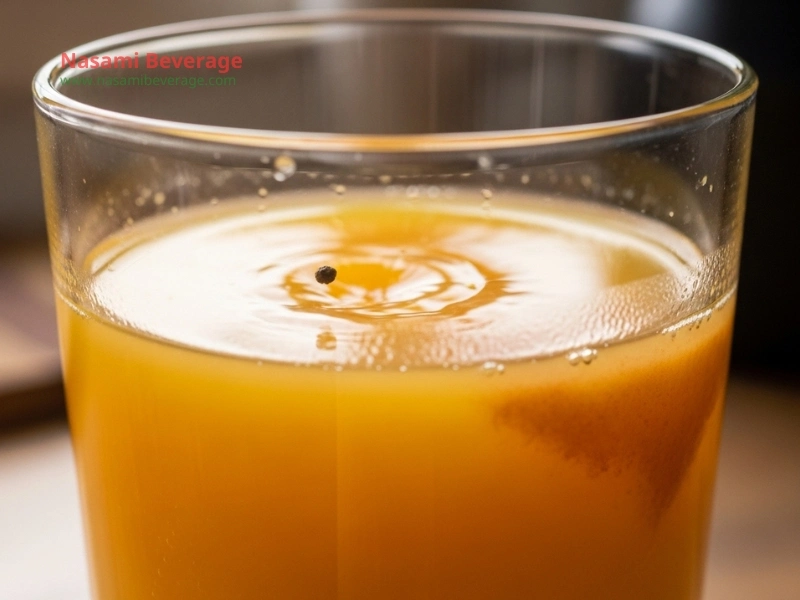For decades, we’ve associated this popular beverage with a burst of morning energy and a dose of vitamin C. But as nutritional science evolves, a pressing question has emerged: is fresh squeezed orange juice bad for you?
The Nutritional Powerhouse – What’s in Your Glass?
Before we explore the potential downsides, it’s crucial to acknowledge why orange juice earned its healthy reputation in the first place. A glass of pure, fresh squeezed orange juice is packed with beneficial compounds that can contribute positively to your health.
A Blast of Vitamin C and Other Key Nutrients
The most celebrated of all orange juice benefits is its incredibly high Vitamin C content. Vitamin C is a powerful antioxidant that plays a vital role in supporting a robust immune system, helping your body fight off infections and illnesses. It’s also essential for skin health, as it aids in collagen production, and improves iron absorption from plant-based foods.
Beyond Vitamin C, orange juice is a good source of other essential nutrients:
Potassium: This mineral is crucial for maintaining fluid balance, nerve signals, and heart health by helping to regulate blood pressure.
Folate: A B-vitamin that is vital for cell growth and metabolism. It is especially important for pregnant women to prevent birth defects.
Flavonoids: These are potent plant-based antioxidants, such as hesperidin, which have been linked to improved cardiovascular health and reduced inflammation.
The Great Fiber Debate – Juice vs. Whole Fruit
Here is where the first major distinction arises. When you squeeze an orange to make juice, you extract the liquid and leave behind the pulp and membranes.
This process strips out the majority of the dietary fiber. A single medium orange contains about 3 grams of fiber, whereas an 8-ounce glass of juice typically has less than 1 gram.
This lack of fiber is significant. Fiber is essential for a healthy digestive system, as it adds bulk to stool and feeds beneficial gut bacteria.
More importantly, fiber slows down the absorption of sugar into the bloodstream, promoting a feeling of fullness and helping to prevent sharp spikes in blood sugar levels.
The Not-So-Sweet Side of Fresh Orange Juice
While the nutrients are beneficial, the way they are delivered in liquid form presents several health concerns that cannot be ignored. This is where we start to see the potential for even fresh orange juice to have negative effects.
The Sugar Content – A Hidden Concern
An 8-ounce (240 ml) glass of fresh orange juice contains around 21 grams of sugar. While this sugar is natural (fructose), your body metabolizes it similarly to the added sugars found in soda. Without the fiber to slow it down, this rush of sugar hits your liver and bloodstream quickly.
This leads to a critical discussion about orange juice and diabetes. For individuals with diabetes or insulin resistance, the rapid spike in blood sugar after drinking juice can be problematic.
Over time, frequent consumption of high-sugar beverages can tax the pancreas and may contribute to an increased risk of developing type 2 diabetes. The conversation isn’t just about whether it’s “bad,” but about how it directly impacts metabolic health.
Calorie Density and Weight Management
It takes about 3 to 4 oranges to make a single glass of juice. While you might feel full after eating one orange, you could easily drink the juice from four oranges in a minute.
This makes orange juice a concentrated source of calories-around 110 calories per 8-ounce glass-without providing the same level of satiety as whole fruit.
These “liquid calories” can contribute to an overall increase in calorie intake and potentially lead to weight gain if not consumed in moderation.
Potential Impact on Dental Health
The acid in oranges, primarily citric acid, gives the fruit its signature tart taste. However, this same acid is corrosive to tooth enamel.
When you frequently sip on orange juice, you are bathing your teeth in an acidic solution, which can soften the enamel and make your teeth more susceptible to cavities and decay over time.
Is Orange Juice Bad for Acid Reflux?
This is a common question for a reason. For individuals who suffer from gastroesophageal reflux disease (GERD) or frequent heartburn, the answer is often yes.
The high concentration of acid in oranges can irritate the lining of the esophagus and stomach, triggering uncomfortable symptoms like burning in the chest, regurgitation, and a sour taste in the mouth. If you have acid reflux, it’s generally recommended to avoid or strictly limit your intake of citrus juices.
Fresh Squeezed vs. Store-Bought – Is There a Difference?
While our focus is on fresh squeezed juice, it’s important to understand how it compares to the cartons you find at the supermarket.
Purity of Homemade Juice: When you make it yourself, you know exactly what’s in it: 100% juice. There are no added sugars, preservatives, or colorings.
Understanding Store-Bought Options: Commercial juices can be tricky.
“Not From Concentrate”: This juice is squeezed, pasteurized (heated to kill bacteria and extend shelf life), and packaged.
“From Concentrate”: The water is evaporated from the juice, it’s shipped as a concentrate, and then water is re-added before packaging. This heavy processing can degrade some of the natural nutrients and flavors.
Added Ingredients: Many commercial brands, even those that seem healthy, can be a source of bad orange juice by containing added sugars or flavor packs to ensure a consistent taste year-round. Always read the label to ensure you’re buying “100% juice.”
Ultimately, while fresh squeezed is purer, both fresh and 100% store-bought juice share the same core issues: high sugar and no fiber.
So, Is Fresh Squeezed Orange Juice Bad for You? The Verdict
The answer is nuanced. Fresh squeezed orange juice is not an inherently “bad” food, but it is one that requires mindful consumption.
It is a tale of two halves: a beverage that offers valuable vitamins and antioxidants but, at the same time, delivers a concentrated dose of sugar and calories without the balancing effect of fiber.
The key to incorporating orange juice into a healthy diet is moderation. To enjoy its benefits while minimizing the risks, follow this advice:
Prioritize Whole Fruit: Always choose to eat a whole orange over drinking a glass of juice. You’ll get all the vitamins plus the essential fiber.
Watch Your Portion Size: If you do drink orange juice, limit yourself to a small glass (4-6 ounces, or about 150 ml) per day.
Choose Pulp: Opt for juice with pulp to get a small amount of extra fiber and plant compounds.
Never Use It to Quench Thirst: Drink water for hydration. Think of orange juice as a supplement, not a primary beverage.
Frequently Asked Questions (FAQ)
Is it okay to drink fresh squeezed orange juice every day?
In a small, controlled portion (4-6 ounces), it can be part of a healthy diet for most people. However, eating a whole orange is a better and healthier daily habit due to its fiber content.
Does orange juice with pulp have more benefits?
Yes, it contains slightly more fiber and beneficial plant compounds than no-pulp versions. While still significantly less than a whole orange, it is a marginally better choice.
Can drinking orange juice help prevent a cold?
The high Vitamin C content can certainly support and strengthen your immune system. However, scientific evidence does not support the idea that it can definitively prevent a cold, though it may reduce the duration or severity of symptoms.
Why does orange juice taste bad after brushing teeth?
This strange phenomenon is caused by a compound in most toothpastes called sodium lauryl sulfate (SLS). SLS suppresses the sweet-taste receptors on your tongue and breaks down fats that normally block your bitter-taste receptors. This double-whammy means you can’t taste the sweetness of the juice, and the bitterness of the acid in oranges is greatly amplified.
This comprehensive guide on the topic of is fresh squeezed orange juice bad for you has been compiled by the expert team at Nasami Beverage. Our goal is to provide clear, evidence-based information to help you make healthier choices.
The best diet is an informed one, where you understand that even natural foods like orange juice have a place, as long as it’s the right one.

